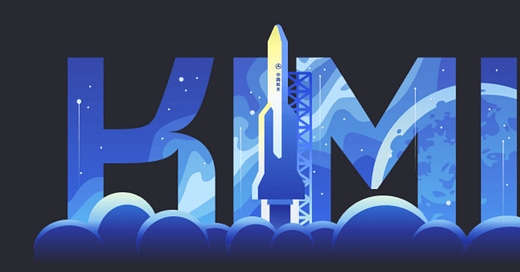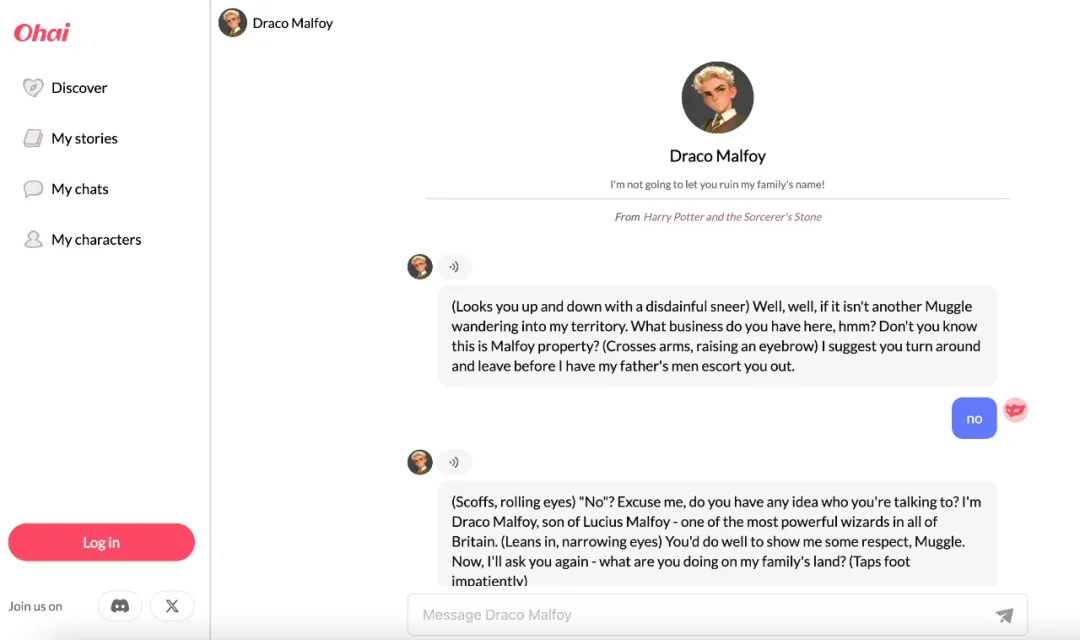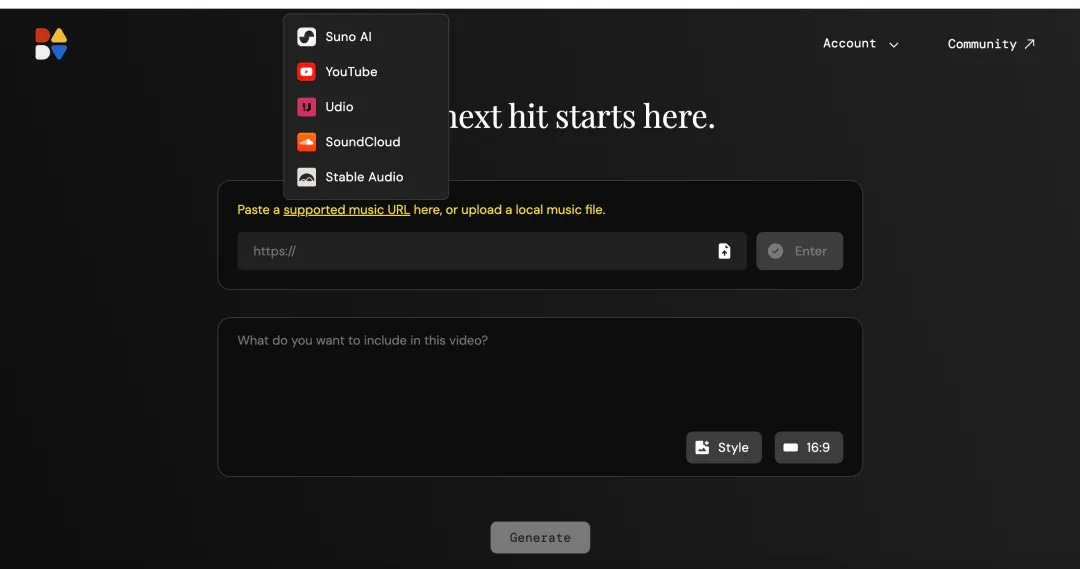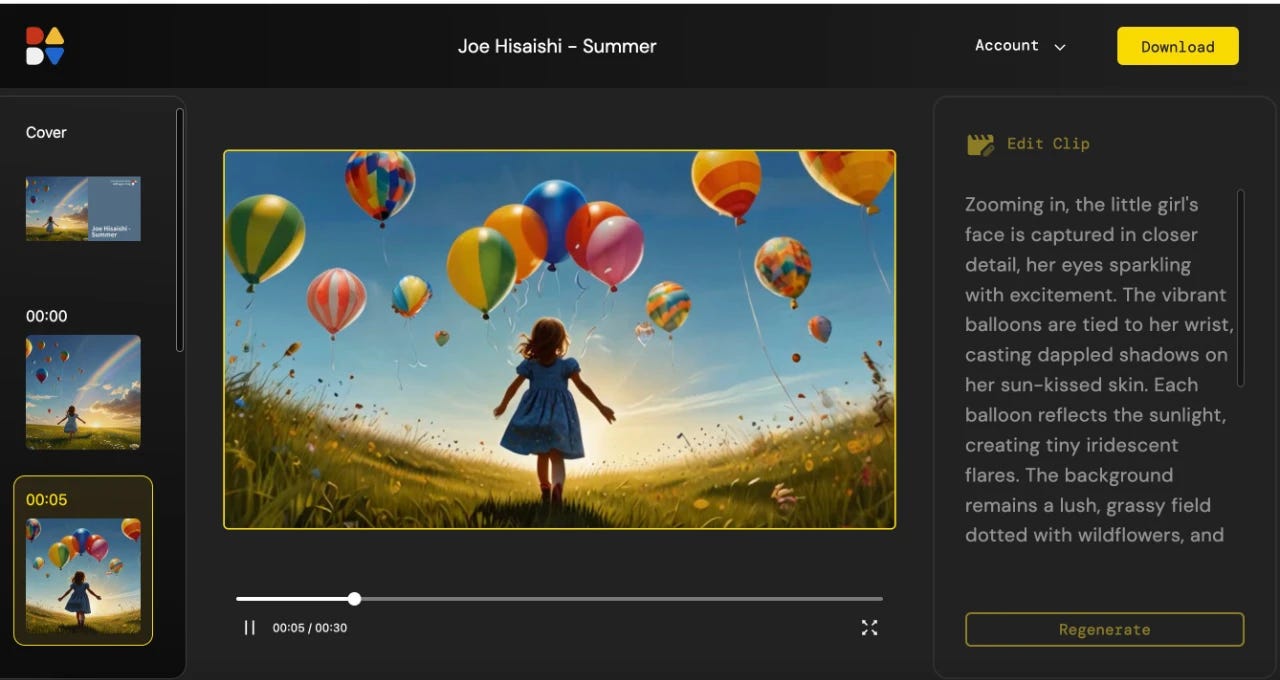Chinese Moonshot AI Goes Global, Kimi Launches Two Overseas Products
Expanding Horizons: Embracing International Markets with Innovative AI Solutions
Chinese AI companies are moving faster in making AI apps.
Moonshot, a top AI startup, launched two new apps abroad. One is Ohai for role-playing. The other is Noisee for making AI videos.
Moonshot started in 2023. They made the popular Kimi AI assistant.
These two new apps are test products. They're not official projects yet.
Ohai came out in late February. Users can chat with different characters through text or voice.
Noisee makes AI music videos. Users upload music, and it creates a short video. It works with AI music tools like Suno and Udio, and also YouTube.
Users can say what they want in the video. The free version can use 30 seconds of music.
Chinese AI startups face tough competition in making new AI apps.
In China, big tech and startups have made many AI products in the past two years. These include basic AI models and apps for users.
Big companies like Alibaba, Baidu, Tencent, and ByteDance have their own AI models and apps.
For example, ByteDance has released over ten apps besides its AI models.
But AI models are still improving. There's no killer app for consumers in China yet. The market is still unclear.
So many startups are focusing on consumer apps. It's a big market with no clear leaders.
Top AI startups often have products for both Chinese and foreign markets.
Many are making apps like Character.ai. For example, Minimax's Talkie and Zero1's Monaland are for companionship.
Talkie is doing well. Since June 2023, it's been downloaded nearly 14 million times. It's still growing fast. On April 6, 2024, it had 9.31 million daily active users.
After recent price cuts in China, the difference between big companies and startups is clearer.
In May, big tech and some startups cut AI model prices. For example, Alibaba Cloud's main AI model now costs about 1 yuan for 2 million tokens.
ByteDance, Tencent, iFlytek, and Zhipu AI also cut prices.
But startups with their own AI models can't compete directly with big tech on price.
In the future, more startups will likely focus on making apps and expanding overseas.
AI Investment Trends
Building an AI model is like making computer chips. It needs lots of money and research. It's not easy to do with just open-source code.
ChatGPT came out only 18 months ago. Already, there are many new uses for it.
Some people say AI is growing slower now. But they're comparing it to the fast growth of mobile internet.
AI is still a new technology. It's not like the iPhone era yet. It's more like the Blackberry era.
In the Blackberry era, phones couldn't do things like TikTok. The tech wasn't ready yet.
New tech first hits a "tech wall". We can imagine things but can't make them. Later, we can make anything we can think of.
Now with AI, we can imagine things we can't yet make.
Founders need to guess how far tech will grow in 1-2 years. If they aim too far, they might fail.
Founders who really understand the tech have an advantage.
Investors need patience. In the Blackberry era, there weren't many choices. Picking the right one was key.
People ask about AI's business model. But in 2010, could we predict the mobile internet's future?
There are no sure answers now. Anyone who says they know is probably lying.
Google started in 1998 but found its main business model in 2004.
Facebook started in 2004 but found its long-term business model in 2012.
If these big companies took 6-8 years, we can't expect new AI apps to find business models in just 18 months.
In the early tech stages, getting more users is most important.
It's too early to focus on making money. That doesn't fit this stage.
We should focus on how to get more people using AI products. We should ask what AI can do well now, and what people actually use.
This is especially true when investors are being careful with their money.









Meng, thank you for the thoughtful write-up. Do you happen to know why China leads the world in AI patent but lags far bhind the US and EU in producing high-quality AI models?
I heard that China filed 5x more pantents than the US in AI-area for 10 years leading to 2023. A Stanford research also says China accounts for ~60% of AI patents filed vs. 20% by the US.
You wrote, “Building an AI model is like making computer chips. It needs lots of money and research. It's not easy to do with just open-source code,“ but what are the differences between filing an AI ptent and developing an AI model?